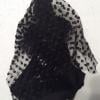Search the Community
Showing results for 'autoimmune'.
Found 1,094 results
-
My heart goes out to you! Although I don't have thyroid cancer, I have been suffering from Graves Disease (autoimmune thyroid disease) for decades, before finally being formally diagnosed in May 2015. As my thyroid was destroyed via radioactive treatment, I later had to go on Thyroid replacement med. What I noticed was that once my regular dose was decreased by 50%, I slept better, but my weight was staying the same, and my old sweet cravings came back. So, for me, I am still playing the dosage adjustment dance. Anyway, I just wanted to say hello, and offer you a link to great Thyroid Support sites, BP permitting. I belong to few online thyroid support groups, and find them very beneficial. Here is a link: https://www.verywell.com/finding-thyroid-support-and-support-groups-online-3233103 Prayers and well wishes to you!
-
Thank you very much Gamergirl. Yes it will be tricky to adhere to such a diet but I have to try, probiotics, green superfood powder, flaxseed, coconut oil, protein shakes, sardines in olive oil, tuna, and as many greens as I can get at the difac plus ots of green tea even though I HATE green tea, blechhh. But I have to try, having been recently diagnosed with an autoimmune disease.
-


5 months out PICS PICS PICS
AutumnLily replied to FlyGirl's topic in Weight Loss Surgery Success Stories
I wish they had the delete option for those who made a post and want to remove it. For awhile you could hit edit and erase the info and put in "double post" but now the edit works weird too. You do not have access to the original post just that you can add onto the information. Flygirl congrats on the 70 lbs lost. Lucky they found your autoimmune disorder and now you are receiving treatment. -


Count down to DEC 17 surgery date!
Sadlers1999 replied to BabyHuey's topic in PRE-Operation Weight Loss Surgery Q&A
Well...if it makes you feel better I am not using any of the fancy stuff now. I have to take synthroid for my thyroid. That is a problem that will never go away regardless of weight loss. I have an autoimmune problem called Hashimoto's. Any way grinding up pills and putting them in other things just tastes nasty. I am really surprised that you had to ask for prescription pain meds when they released you from the hospital, though. -


Is anyone familiar with the obesity help lb forum?
LeslieW replied to dolphintattoo's topic in PRE-Operation Weight Loss Surgery Q&A
Yeah it scared the hell out of me too! I am on day 6 and just now starting to feel good. I was like holy crap I am going to die even though I know that isn't true. I am a smart person. I did my research. It's not like any of us just rolled out of bed one morning and said gee I think I am going to get major surgery today. I agree With SinCityGal. It is a toxic site. I have been able to get my head back on straight by posting and reading here and in the group run by my surgeons office. My husband reminded me about that commercial for insurance that says.. it has to be true if its on the internet. LOL Bonjour!! I would advise anyone to stay far far away from that site. *As far as autoimmune diseases, the only one that is listed as a direct contradiction to the band is Lupus. But, even with Lupus, there are people who have it and still do just fine with the band. * I am not sure what all is actually listed as far as the company that makes the lapband but my surgeon said it was contraindicated in people with Lupus, HIV, and Rheumatoid arthritis. He went over all of that in my preop. He was very detailed in what expectations should be. I am so glad lupus has not shown up for you yet Missy. I do hope you dodge that one. I would not wish that on anyone. I admire your strength! -
So I’m struggling with the whole thought of loose skin. I’ve lost 60 pounds already. I’m 5’4. The gastric sleeve was a medical necessity not by choice I have an autoimmune disease. I was 280 now I’m 220 about 8 weeks post op. I was always comfortable in my skin. Now idk. I keep losing and I know that I won’t be able to afford plastics. TMI but I also have big boobs. Always have since high school when I was a skinny. Now I worry I’m just going to be a walking flab. Im getting insecure which is not like me at all. The struggle is real.
-


5 months out PICS PICS PICS
FlyGirl replied to FlyGirl's topic in Weight Loss Surgery Success Stories
I found out from the test of the pancreatitus that it caused by my bad gullbladder, I have a "low functiouning" Gallbladder and it's full of stones from the rapid weight loss.. I really wish he would have taken out when I got the sleeve, My autoimmune disorder is just genetic and that along with the pancraititus is was cause the 3 clots I feel SO much better, healthier, more energy. I smile more! I'm not the fattest person in the room YAY! I'm looking forward to the next few months I hope to meet goal by my 1 year anniversay I had the sleeve done at Miami Valley Hopsital in Dayton, OH - Premeier Metabolic- DR. Teel. Most wonderful doctor! I trust him enought that I feel fine with my mom getting it done by him. She is just starting her process now. -
I am still pre op. too. in fact, I start my 3 month medical weight management on Tues. I began on my own though this past week. I am currently taking daily steroids for autoimmune disease and I am starving from sun up to sun down. Here's my thoughts on my last big grocery shopping last week. When shopping healthy, you pay more for convenience. Meaning the less you have to do when you get the food home to consume it. I still had to get the little things for my Autistic texture sensitive 9 yr old that I don't eat or drink. But, I bought the bulk boneless skinless fresh chicken breast package ( i get 8 big chicken breasts in it) and a ton of veggies and some fruits. When I got it home, I put each chicken breast into a freezer bag and put them into the freezer. Now, We generally eat more than a chicken breast between the three of us, but I've found that by freezing them individually, they thaw quicker. Which in my house can be interpretted as one less excuse to just get fast food. They are thawed in time to make for dinner. The veggies and fruits, I immediatly started washing, chopping (or tearing for the greens) and putting in variety of sized baggies, For example, a head of lettuce cost me under $1. By washing and tearing it up myself, I had a very stuffed gallon sized baggie full of lettuce ready to go. I tuck a paper towel in with it to keep it fresh longer. But, Our fave bagged salad is $3.88 per bag and you get half the amt. I got a bunch of celery. I washed it, and tore off all of the leaves and put them in a baggie in the fridge. The stalks, I made nice thin match sticks out of. Those I put into snack sized baggies. I probably made 12-16 snack size baggies of celery sticks. Same with the seedless grapes. I washed, plucked and scooped half cup size portions into snack baggies. I washed and chopped up two heads of cauliflower. I LOVE roasted cauliflower. I just toss a bunch of popcorn sized florets onto a cookie sheet. spray them lightly with some cooking spray and sprinkle them with dried italian seasoning. I bake until they brown just a bit. Anyways, same with the cucumbers, berries, zucchini, broccoli, and squash, etc. I spent less and did more prep at home, but as my Granny often says " I've got more time than money". LOL. It stretched my same grocery bill with same spending into what is now grab and go healthy food. We typically eat fast food or the likes of fast food 3x per week. Between my health issues and my special needs child's issues and therapy schedules, it's just become a way of life. We haven't eaten out since last Sunday. And we haven't gone without either. You'll have to factor in Protein shakes for your future. My husband is a work out nut. Seriously goes to the gym 7 days a week, plus runs. He goes thru a lot of Protein Shakes. But, I'd guess he spends about $40-$50 a month on the big things of Protein powder. I plan on saving that money for myself every week just by skipping the fast foods and the cokes or dr peppers here and there. I hope this helps a little.
-
I have fibromyalgia and I know it's an autoimmune disorder. Not disease, but disorder. I was wondering if I can still get a lapband? I have not been to my first appointment yet but if there is no chance, I will cancel the appointment. I'm hoping it won't matter. If there's anyone that has had the proceedure done and they have fibromyalgia or chronic fatigue syndrome please share with me. thanks Ms.Jules
-
It's an autoimmune thyroid disease, causing hyperthyroidism. It's controlled with medication, and sometimes radioiodine treatment. There are many other treatments, but I'm not up on all of it. An old client's daughter had it, and that's when I became aware of the disorder. I have Hashimotos, which is also an autoimmune thyroid disease. With that, comes the opposite issues of Graves; hypothyroidism. I always joked that I wish if I have to have a thyroid disorder, that it was Graves......because with being hyperthyroid, comes weight loss But it's just a joke......because the issues of Graves disease can be very serious. I hope your DIL has a good doctor, and gets the proper course of therapy to get it under control. An endocrinologist would be the best option.
-


Severe slime choking me constantly and acid in lungs at night
tx2az replied to Kate207's topic in POST-Operation Weight Loss Surgery Q&A
I have Sjogren's Syndrome. Mine is moderate, mainly causing a lack of moisture in my mouth, sinuses, throat, and eyes. I take OTC guaifenesin (generic Mucinex) to help thin down the mucus in my throat. I had the sleeve on 9-1 and have had "the foamies" more than I have ever had. Often after I drink a protein shake. "Foamies" is such an accurate description! If I miss even one day of not taking the guaifenesin I get this awful "plug" of slimy mucus in my throat that basically chokes me until I can get it up and get rid of it. I have had this problem for years, finally I went to an ear, nose, and throat dr that correctly diagnosed my problem and put me on guaifenesin. This is not medical advice, just my experience. Maybe finding a different kind of doctor would help, as it did with me. Best wishes to you. Sjögren's is a systemic autoimmune disease that affects the entire body. Along with symptoms of extensive dryness, other serious complications include profound fatigue, chronic pain, major organ involvement, neuropathies and lymphomas. -
Taken from http://www.fda.gov/cdrh/pdf/P000008b.doc WARNING: Laparoscopic or laparotomic placement of the LAP-BAND System is major surgery and death can occur WARNING: Failure to secure the band properly may result in its subsequent displacement and necessitate reoperation. WARNING: A large hiatal hernia may prevent accurate positioning of the device. Placement of the band should be considered on a case-by-case basis depending on the severity of the hernia. WARNING: The band should not be sutured to the stomach. Suturing the band directly to the stomach may result in erosion. WARNING: Patients’ emotional and psychological stability should be evaluated prior to surgery. Gastric banding may be determined to be inappropriate, in the opinion of the surgeon, for select patients. WARNING: Patients should be advised that the LAP-BAND System is a long-term implant. Explant and replacement surgery may be indicated at any time. Medical management of adverse reactions may include explantation. Revision surgery for explantation and replacement may also be indicated to achieve patient satisfaction. WARNING: Esophageal distension or dilatation has been reported to result from stoma obstruction due to over-restriction, due to excessive band inflation. Patients should not expect to lose weight as fast as gastric bypass patients, and band inflation should proceed in small increments. Deflation of the band is recommended if esophageal dilatation develops. WARNING: Some types of esophageal dysmotility may result in inadequate weight loss or may result in esophageal dilatation when the band is inflated and require removal of the band. On the basis of each patient's medical history and symptoms, surgeons should determine whether esophageal motility function studies are necessary. If these studies indicate that the patient has esophageal dysmotility, the increased risks associated with band placement must be considered. WARNING: Patients with Barrett's esophagus may have problems associated with their esophageal pathology that could compromise their post-surgical course. Use of the band in these patients should be considered on the basis of each patient’s medical history and severity of symptoms. WARNING: Patient self-adjustment of superficially placed access ports has been reported. This can result in inappropriate band tightness, infection and other complications. Precautions CAUTION: Laparoscopic band placement is an advanced laparoscopic procedure. Surgeons planning laparoscopic placement must: Have extensive advanced laparoscopic experience, i.e., fundoplications. Have previous experience in treating obese patients and have the staff and commitment to comply with the long-term follow-up requirements of obesity procedures. Participate in a training program for the LAP-BAND System authorized by BioEnterics Corporation or an authorized BioEnterics distributor (this is a requirement for use). Be observed by qualified personnel during their first band placements. Have the equipment and experience necessary to complete the procedure via laparotomy, if required. Be willing to report the results of their experience to further improve the surgical treatment of severe obesity. CAUTION: It is the responsibility of the surgeon to advise the patient of the known risks and complications associated with the surgical procedure and implant. CAUTION: As with other gastroplasty surgeries, particular care must be taken during dissection and during implantation of the device to avoid damage to the gastrointestinal tract. Any damage to the stomach during the procedure may result in erosion of the device into the GI tract. CAUTION: During insertion of the calibration tube, care must be taken to prevent perforation of the esophagus or stomach. CAUTION: In revision procedures the existing staple line may need to be partially disrupted to avoid having a second point of obstruction below the band. As with any revision procedure, the possibility of complications such as erosion and infection is increased. Any damage to the stomach during the procedure may result in peritonitis and death, or in late erosion of the device into the GI tract. CAUTION: Care must be taken to place the access port in a stable position away from areas that may be affected by significant weight loss, physical activity, or subsequent surgery. Failure to do so may result in the inability to perform percutaneous band adjustments. CAUTION: Care must be taken during band adjustment to avoid puncturing the tubing which connects the access port and band, as this will cause leakage and deflation of the inflatable section. CAUTION: The LAP-BAND System is for single use only. Do not use a band, access port, needle or calibration tube which appears damaged (cut, torn, etc.) in any way. Do not use one of them if the package has been opened or damaged, or if there is any evidence of tampering. If packaging has been damaged, the product may not be sterile and may cause an infection. Do not attempt to clean, re-sterilize or re-use any part of the LAP-BAND Adjustable Gastric Banding System. The product may be damaged or distorted if re-sterilized. CAUTION: It is important that special care be used when handling the device because contaminants such as lint, fingerprints and talc may lead to a foreign body reaction. CAUTION: Care must be taken to avoid damaging the band, its inflatable section or tubing, the access port or the calibration tube. Use only rubber-shod clamps to clamp tubing. CAUTION: The band, access port and calibration tube may be damaged by sharp objects and manipulation with instruments. A damaged device must not be implanted. For this reason, a stand-by device should be available at the time of surgery. CAUTION: Failure to use the tubing end plug during placement of the band may result in damage to the band tubing during band placement. CAUTION: Do not push the tip of any instrument against the stomach wall or use excessive electrocautery. Stomach perforation or damage may result. Stomach perforation may result in peritonitis and death. CAUTION: Over-dissection of the stomach during placement may result in slippage or erosion of the band and require reoperation. CAUTION: Failure to use an appropriate atraumatic instrument such as the LAP-BAND Closure Tool to lock the band may result in damage to the band or injury to surrounding tissues. CAUTION: The band is not intended to be opened laparoscopically with surgical instruments. Unrecognized damage to the band may result in subsequent breakage or failure of the device. CAUTION: When adjusting band volume take care to ensure that the radiographic screen is perpendicular to the needle shaft (the needle will appear as a dot on the screen). This will facilitate adjustment of needle position as needed while moving through the tissue to the port. CAUTION: When adjusting band volume use of an inappropriate needle may cause access port leakage and require re-operation to replace the port. Use only LAP-BAND System Access Port Needles. Do not use standard hypodermic needles, as these may cause leaks. CAUTION: When adjusting band volume never enter the access port with a “syringeless ” needle. The Fluid in the device is under pressure and will be released through the needle. CAUTION: When adjusting band volume once the septum is punctured, do not tilt or rock the needle, as this may cause fluid leakage or damage to the septum. CAUTION: When adjusting band volume if fluid has been added to decrease the stoma size, it is important to establish, before discharge, that the stoma is not too small. Care must be taken during band adjustments not to add too much saline, thereby closing the gastric stoma. Check the adjustment by having the patient drink Water. If the patient is unable to swallow, remove some fluid from the port, then recheck. A physician familiar with the adjustment procedure must be available for several days post-adjustment to deflate the band in case of an obstruction. CAUTION: It is the responsibility of the surgeon to advise the patient of the dietary restrictions which follow this procedure and to provide diet and behavior modification support. Failure to adhere to the dietary restrictions may result in obstruction and/or failure to lose weight. CAUTION: Patients must be carefully counseled on the need for proper dietary habits. They should be evaluated for nutritional (including caloric) needs and advised on the proper diet selection. If necessary to avoid any nutritional deficiencies, the physician may choose to prescribe appropriate dietary supplements. The appropriate physical monitoring and dietary counseling should take place regularly. CAUTION: Patients must be cautioned to chew their food thoroughly. Patients with dentures must be cautioned to be particularly careful to cut their food into small pieces. Failure to follow these precautions may result in vomiting, stomal irritation and edema, possibly even obstruction. CAUTION: Patients must be seen regularly during periods of rapid weight loss for signs of malnutrition, anemia or other related complications. CAUTION: Anti-inflammatory agents, which may irritate the stomach, such as aspirin and non-steroidal anti-inflammatory drugs, should be used with caution. The use of such medications may be associated with an increased risk of erosion. CAUTION: Patients who become pregnant or severely ill, or who require more extensive nutrition, may require deflation of their bands. CAUTION: All patients should have their reproductive areas shielded during radiography. CAUTION: Insufficient weight loss may be caused by pouch enlargement or more infrequently band erosion, in which case further inflation of the band would not be appropriate. CAUTION: Elevated homocysteine levels have been found in patients actively losing weight after obesity surgery. Supplemental folate and Vitamin B12 may be necessary to maintain normal homocysteine levels. Elevated homocysteine levels may increase cardiovascular risk and the risk of neural tube abnormalities. CAUTION: Although there have been no reports of autoimmune disease with the use of the LAP-BAND System autoimmune diseases, connective tissue disorders (i.e., systemic lupus erythematosus, scleroderma) have been reported following long-term implantation of other silicone devices. These conditions have primarily been hypothesized to be associated with silicone breast implants. There is currently no conclusive clinical evidence to substantiate a relationship between connective-tissue disorders and silicone implants. Definitive long-term epidemiological studies to further evaluate this possible association are currently underway. However, the surgeon should be aware that if autoimmune symptoms develop following implantation, definitive treatment and/or band removal may be indicated. Likewise, patients who exhibit preexisting autoimmune symptoms should be carefully evaluated prior to implantation of the LAP-BAND System and may not be appropriate candidates (see Contraindications).
-


Gastric Bypass for Senior Citizen
DB in AZ replied to Too old to lose?'s topic in Gastric Bypass Surgery Forums
Am I the oldest? I'm 73 and will hopefully have the sleeve done in Feb. My story is similar to everyone's: yo-yoed my entire adult life, losing and gaining overweight but not obese. Nine years ago I developed an autoimmune disease which is controlled by steroids. Long term steroid therapy is like having another disease. Besides potential diabetes, increased risk of infection (thankfully I have not developed), what affects weight is increased appetite, slower metabolism, and redistribution of weight (belly fat). For the past eight years I have been well over 225 lb and it is next to impossible to lose. I also have high blood pressure and sleep apnea. My PCP and Hematologist as well as other Drs feel that I am a good candidate for the sleeve. My goal is to obviously lose weight but also to have a tool for me to eat less for the rest of my life.I want to be able to get down on the floor to play with my grandchildren, have energy for my passions and to take a brisk walk. In short I want quality of life for whatever years I have left.I have completed all the requirements and am waiting to be scheduled. I have researched alot about bariatric surgery really enjoy reading these posts. I am especially impressed that so many of you have exceeded your weight loss goals. I anticipate that I will be a slow loser due to my age and the steroids but I am prepared and committed for the journey. -


Rheumatoid Arthritis & Lap Band Surgery
kewlshort1 replied to hudson52's topic in PRE-Operation Weight Loss Surgery Q&A
I've got RA, Lupus and Fibromyalgia. My surgeon has said that it shouldn't be a problem, but that he'd want me to stop taking the NSAIDS. I'm okay with that, because of all the pills I take, I think those work the least. He also said that because of the autoimmune disorders, there is the potential for my body to react to the band itself, in which case they would have to remove it. Being that I have had 2 cesarean sections and never had a reaction to those surgeries, I'm not concerned. Losing the extra weight will immensely help my health conditions, so I was very happy to hear him say that it wasn't going to prevent me from surgery. -
Hello, I need a lapband mentor...I have so many questions even before I go to the seminar, but want to actually talk to someone...is there anyone who wants to be my lapband mentor? I just have so many questions and want to talk to someone who's “been there done that”. I also have MS so if you (unfortunately) have an autoimmune disease I think we could relate more. Either way...I just want to talk. I promise I'm not a creep, I’m a happily married women etc. . Thanks everyone!!! Send me a message and I can give you my number.
-
I was also hoping this surgery would magically fix all my body pain. I have Hashimotos, Fibromyalgia, and a few other autoimmune disorders. The other reason I wanted to lose weight was to keep my weight from being brought up as a reason for my pain. Doctors are so bad about saying if you lose weight you'll feel better. I have lost 78 pounds and I'm running 3 times a week, but still in pain. I think I remember reading that you have hypothyroidism, but can't remember if it was Hashis? Many docs are now saying that 90% of patients with hypo do have Hashis. I've been doing an enormous amount of reading on it to try to find a solution to my issues. I have never gotten any relief for my thyroid symptoms from taking Synthroid and getting my TSH to the low end of normal. I am frustrated that I still have a tremendous amount of hair loss, cold hands/feet, dry skin, losing the outer part of my eyebrows, severe brain fog, lack of concentration, slow weight loss, etc. I've started going to an acupuncturist that specializes in guiding Hashimotos patients through bloodwork and supplements to help decrease symptoms. Although the acupuncture seems to help, he has said that my solution lies with western medicine, not eastern. He recommended the book "Stop the Thyroid Madness". There's also a pretty good Facebook group called Hashimotos 911. Based on my bloodwork, I am adding some T3 hormone, sublingual Vit D, slow release Iron, and magnesium. Have you had your Vitamin D and iron levels checked since your surgery? I have trouble absorbing Vit D from food and the prescription supplement that I take is not absorbing as well as it did before surgery. I have had to add some sublingual Vit D. The pain that I get is deep and aching. Since I've added the sublingual, I'm not in as much pain. My endo got me up to 35 on the Vit D levels (I was at 11!), but according to my research, I need to be above 80 to be at the optimal levels.
-


Auto-immune Disease and Band Rejection
danaclark2 replied to Amanda's topic in LAP-BAND Surgery Forums
Here's what Inamed says: ***Number 18 talks about auto-immune disorders but does not mention thyroid problems. Contraindications The LAP-BAND System is not right for you if: You have an inflammatory disease or condition of the gastrointestinal tract, such as ulcers, severe esophagitis, or Crohn's disease. You have severe heart or lung disease that makes you a poor candidate for surgery. You have some other disease that makes you a poor candidate for surgery. You have a problem that could cause bleeding in the esophagus or stomach. That might include esophageal or gastric varices (a dilated vein). It might also be something such as congenital or acquired intestinal telangiectasia (dilation of a small blood vessel). You have portal hypertension. Your esophagus, stomach, or intestine is not normal (congenital or acquired). For instance you might have a narrowed opening. You have/experienced an intra-operative gastric injury, such as a gastric perforation at or near the location of the intended band placement. You have cirrhosis. You have chronic pancreatitis. You are pregnant. (If you become pregnant after the BioEnterics® LAP-BAND® System has been placed, the band may need to be deflated. The same is true if you need more nutrition for any other reason, such as becoming seriously ill. In rare cases, removal may be needed.) You are addicted to alcohol or drugs. You are under 18 years of age. You have an infection anywhere in your body or one that could contaminate the surgical area. You are on chronic, long-term steroid treatment. You cannot or do not want to follow the dietary rules that come with this procedure. You might be allergic to materials in the device. You cannot tolerate pain from an implanted device. You or someone in your family has an autoimmune connective tissue disease. That might be a disease such as systemic lupus erythematosus or scleroderma. The same is true if you have symptoms of one of these diseases. Some surgeons say patients with a "sweet tooth" will not do well with the LAP-BAND System. If you eat a lot of sweet foods, your surgeon may decide not to do the procedure. The same is true if you often drink milkshakes or other high-calorie liquids. -
I am off it now but my surgeon told me to be certain to contact him before going back on it post sleeve. He said I would need to take another drug first to protect my esophagus and stomach from damage from it. I have an autoimmune disease, scleroderma.
-


Auto-immune Disease and Band Rejection
sisterfunkhaus replied to Amanda's topic in LAP-BAND Surgery Forums
I have wodered about this b/c I POSSIBLY have Systemic Lupus. I have tested +1 ANA ONCE in five years. My doctor at this point calls it an inflammatory arthropothy. I take Plaquanil and have no symptoms as of right now. My symptoms have never been life or death. I've never had any organ involvement. As a matter of fact, I NEVER had even one symptom until five years ago when I gained weight for the second time. In my case, I think my body isn't liking the 100 lbs. of extra fat. I have a feeling that the band is going to help. I am very glad to see other autoimmune people having good luck with the band. I haven't gotten mine yet, but I will soon :eek: The doctors office I went to before was going to do it. The doc that I am going to didn't seem to think it would be a problem and has done this surgery on several auto-immune people. I am also curious, what happens when the body rejects the band? -


Auto-immune Disease and Band Rejection
lildarlin replied to Amanda's topic in LAP-BAND Surgery Forums
Amanda, I have auto-immune thyroiditis, everything is under control now, my levels are normal. I'm not banded yet but almost to the point of approval. I would go to Inamed's website because they do say that individuals with certain autoimmune diseases should not have the band placed. The key word is certain....not all auto immune disease are cause to NOT place the band. Thyroid issues aren't one of them. I remember Lupus being mentioned...I know there are more. I do wonder about it though. If antibodies are trying to attack my thyroid, wouldn't they attack the band? I've been told over and over by experienced bandsters, NO. I do plan on asking my surgeon again on Thursday to see what he has to say. -


Auto-immune Disease and Band Rejection
Archermom replied to Amanda's topic in LAP-BAND Surgery Forums
Hi Delarla, your last post rang a bell with me- I work with women after breastcancer surgeries - many of them have or had reconstructions. Guess what - their implants were mostly made out of Silicone. That's were all the big controverse started- if the silicone or a leaking implant can cause autoimmune disease or make an excisting one worse. I am wondering if that is what they are referring to in a roundabout way - since the band contains silicone - could that in some cases make an excisiting auto immune problem worse? Just my thoughts and 2 cents. -


Rheumatoid Arthritis and Lapband anone?
DELETE THIS ACCOUNT! replied to Michelle Denise's topic in PRE-Operation Weight Loss Surgery Q&A
Per the Allergan website, there is NO warnings or contradictions for people with RA or MS. It is NOT all autoimmune diseases that have a problem with the band, in fact it's only a very small number of them: "You or someone in your family has an autoimmune connective tissue disease, such as systemic lupus erythematosus or scleroderma. The same is true if you have symptoms of one of these diseases." Here's the original text: https://www.lapband.com/learn-about-lapband/lapband-is-for-you -


Comparison between Bypass and VSG
Sotiredofit posted a topic in PRE-Operation Weight Loss Surgery Q&A
Hello! Glad I found this website! As a newbie, I'm pretty convinced that VSG is the best choice for me, since I have an autoimmune disease and am prone to infections due to using Methotrexate to fight the disease (oh, what a conundrum that is). I looked at lap band and read about too many side effects to make that appealing at all. The bypass looks devastating in that there is no absorption and I can't figure out how "eating healthy" would benefit a person who cannot digest his/her food. So, I'm focused on the VSG and will be attending the orientation and consult tomorrow. After looking at the pictures, it appears that there is part of the stomach left and that absorbing healthy foods would benefit the body. I already take a zillion supplements, so that's not a problem for me, BUT I can't imagine how to take them when the stomach is so very small..............are liquid Vitamins more beneficial? I have removed so many things from my diet over the past few years, that I'm already there mentally, but now I'm wondering if a VSG patient can indulge in ice cream, Jell-O and such things that have sugar in them, but turn to liquids? Nuts are supposed to be very important in one's diet.............can a little bitty stomach take them or do they need to be ground into a powder? I'm sure I'll learn much more tomorrow, but I'm excited at the thought of leaving all the fad diets behind me and having a permanent solution: I just pray that it won't be something that makes me feel sick all the time. When does post-op end and "normal" begin? Looking like I'm pregnant after all my effort is so frustrating; especially since I work out 6 days a week, eat healthy and maintain portion control...........Sotiredofit! -


N E 1 been Banded at Mt. Carmel col, oh
sailorChristy replied to Lady Q T's topic in LAP-BAND Surgery Forums
Hi, pretty Juli - Thanks for your response. I should know better than to make ambiguous, melodramatic statements like I did, as if everyone here knows my story. Let me explain a bit. I hope this doesn't come across as defensive or even more melodramatic! I moved home from FL eight years ago, which was 6 months after my Dad's heart attack. He had heart bypass surgery just a few months after I moved to Columbus. Since that time, I've witnessed my precious Dad be diagnosed with one obesity-related disease after another, and observe as he suffers through each day and is hospitalized about once per month. My Dad has heart disease, type-2 diabetes, inflammed/fatty liver, obstructive sleep apnea, congestive heart failure, hypertension, high cholesterol, and depression/anxiety. My Dad is only 61 years old. As for me, my body has already failed me once. I have (had?!) Graves Disease, which is autoimmune hyperthryoidism (dx Nov 2002.) I went through three years of roller-coaster riding on meds (cycling back and forth between hyper and hypo, with occassional moments of bliss in a 'euthyroid'/normal state.) When I started to experience the eye symptoms that often accompany Graves (e.g., they started to bug out of my head), I elected to have a total thyroidectomy. Well, it's a good thing I had the surgery because there were two little secret microcarcinomas that only God knew were there. I had thyroid cancer, but it was stage 1 and the thyroidectomy is the treatment for that. Thyroid disease has been a real strike against me in the weight management department. I've gained about 10# every year since I was first diagnosed with Graves. I can very clearly see my future in my Father's struggles. I have hypertension, anxiety/depression, high cholesterol, and a fatty liver already... and as of last week I have added obstructive sleep apnea to my resume'. I don't want to have to continue living with this burden... with this daily fear of what comes next for me health-wise. I am only 38 years old, and I long to be as active -- and as 'at peace' with my health -- as I was before Graves. (I ran a 5k race every weekend when I lived in Orlando!) I view the LB as the tool that will help me to regain my health and avoid 'the family curse.' I don't feel like I'm viewing it as 'the diet of the month,' but I'll talk to my LB program psychologist about that just in case. I know that life will always throw me curve balls, like you said. I long for the day when I can confront them without the added burden of being 'a sick person.' Thanks again for your response and for the opportunity to explain my melodramatic statements a little better. Y'all will probably be hearing a lot more from me in the weeks to come. I've failed my first month of the pre-op program miserably, but I'm renewing my focus now and 'using my resources' to stay focused. I really think/hope that starting to use the CPAP machine will help improve my frame of mind and this dark spiral of anxiety/depression that I've found myself in lately. :thumbup: -


Low grade fevers start after eating, not sure why?
Brandy36 posted a topic in Gastric Bypass Surgery Forums
Hi I posted earlier about celiac and pain etc... I am 5 years post-op RNY and for over a year have been searching for answers to my physical symptoms and have seen many specialists and my bariatric group to no avail. I am trying to pinpoint things as specifically as possible so that an answer or diagnosis can finally happen and wondered if I had any company out there with similar symptoms. After I eat, doesn't matter what but after I eat a meal I start feeling ill, not like stomachache but like a virus or actually kind of like a Mono kind of feeling. It starts with a low grade fever usually 99.5 and then it starts to go down. I'm not having a hot flash that I know if because no sweating is involved it's just a feeling of being ill. I usually get a headache along with this and sometimes my throat is sore or irritated. I'm usually fatigued most of the day and that's probably the most annoying part of all of this. I was tested for Lyme and Parvovirus and they were negative and for Epstein Barr and it's in my system but not active for whatever that's worth! Don't recall ever having mono but that's how it feels to me now. I've recently seen an allergist, negative, had a colonoscopy and endoscopy and they did find some irritations or ulcers in the lower intestine where it connects to the new pouch and biopsied six of them for cancer and Celiac and also with the blood test and that was negative. I've seen so many specialists, including hematologist, neurologists, and rheumatologist and nothing. I haven't seen an actually immunologist as of yet but am starting to feel like it must be some type of autoimmune disorder. I've felt like completely giving up as it's such a difficult thing to diagnose and some doctors have been wonderful but unfortunately when you see the bad ones they tend to stand out more and knock you down making you feel like an crazy menopausal hypochondriac which if it were all in my head right now put me away forever because life as it is now is not pleasant! Also having an autoimmune disorder mixed in with RNY must also make it more difficult to diagnose at least this is what I'm finding out, I'm just pooped out in all directions! Anyway anyone have or know of anything similar please let me know, Brandy.













